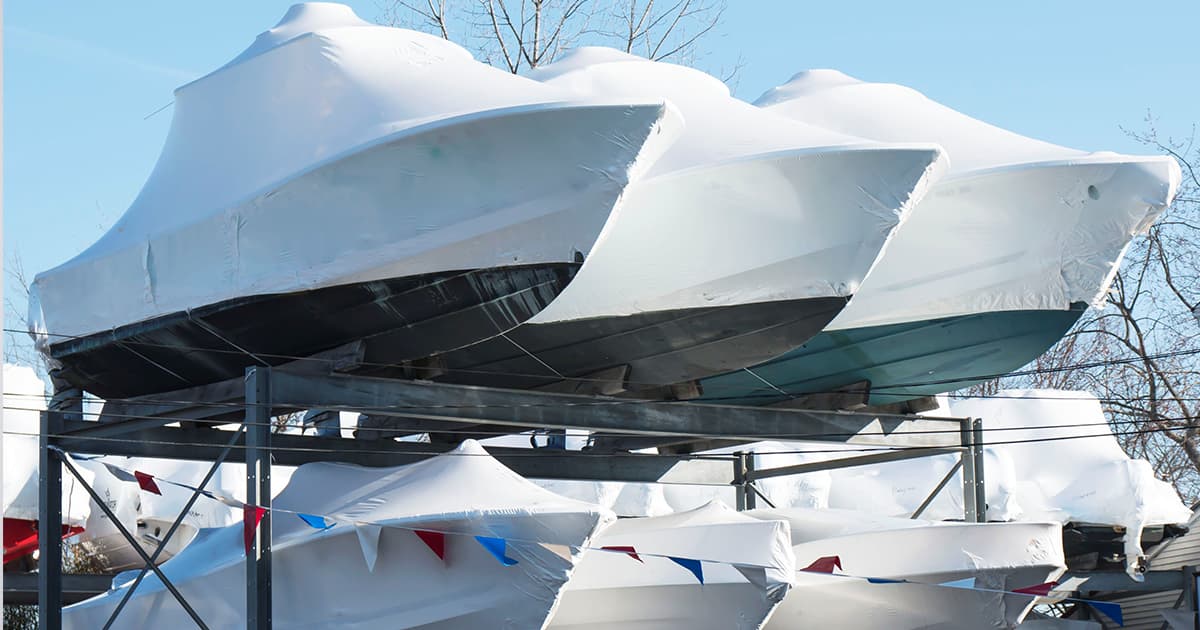What You Need to Know About Boat Insurance

You need to chart a clear course when it comes to boat insurance and how your insurance rate is determined.
If you file an insurance claim, the amount you will be compensated depends on your insurance policy deductible and coverage limit. It also depends on whether your boat is covered for an agreed-upon amount or actual replacement value.
Your top 6 questions answered about boat insurance
Q: Do I need different insurance depending on what type of boat I own – speedboat vs. sailboat?
A: A marine (boat) insurance policy includes both powerboats and sailboats offering the same insurance coverages. A personal watercraft or PWC (Jetski, Seadoo) would have a different type of policy with different coverages.
Q: What kind of coverages do I need for my boat?
A: Hull and Machinery coverage provides physical damage insurance to the boat and attached equipment.
Protection and Indemnity Liability Coverage protects you against bodily injury to a third-party from your use and operation of your boat.
Medical Payments provides coverage for reasonable medical expenses due to an incident onboard your boat.
Most boat insurance policies have these coverages. If there is additional equipment, such as trailers or auxiliary outboards, these will need to be added separately to your policy.
Did you know that all recreational boaters in Canada must obtain a Pleasure Craft Operator Card (PCOC)?
Q: Is boat insurance mandatory?
A: Boat insurance is not mandatory in Canada. It’s important to note that if your boat is financed, docked at a local marina, or stored in a storage facility, you may be required to carry insurance.
Depending on where you live, most marinas and lending institutions require that you have boat insurance.
Q: Do I have watersports liability coverage with my boat insurance?
A: Common watersports such as water skiing, tubing, snorkeling are covered. Each insurance provider, such as Wawanesa, Intact and Aviva, will have different exclusions with this coverage. Check your policy to find out what activities are covered.
Q: Is my boat insured during the winter?
A: Boats are covered when they are stored during winter. Specific storage and winterization requirements may be included in policies, so it’s important to go over your insurance policy’s details to make sure there are no gaps in coverage.
Q: What’s the difference between agreed-upon amount or actual replacement value?
A: The agreed-upon amount means that should something happen to your boat; your insurance provider, such as Intact, Aviva and Wawanesa will give you the insured value without depreciation.
The actual cash value insurance policy pays the fair market value for the insured boat and equipment in the event of a loss.
Ask your Western Financial Group boat insurance expert if you qualify for any discounts for your boat /marine insurance.
Here are your factors that can affect your boat insurance rate
- What type of boat do you own?
What kind of boat you have can have an impact on your insurance rate. Is it a powerboat, cruiser, yacht, or sailboat? Does your boat have an inboard or outboard motor?
- Your boat’s value
The value of your boat is another factor that will affect your insurance rates. If you have an expensive cruiser, you can expect to pay more for boat insurance than someone a runabout.
- The age of your boat
Your insurer may ask for an inspection if your boat is more than 15 years old. The age of your boat plays a role in determining your insurance rates.
If your boat is used, you might get a better rate if it has had only one other owner. Over time, you can expect a good rate if you keep your boat repaired and in good condition.
- How you use your boat
If you only use it for pleasure, you may pay less than someone who uses it for commercial purposes.
- Your insurance history and driving record
If you’ve had past claims or accidents, you can expect to pay more for insurance than someone with a clean record.
Your driving record is also a factor that will affect your boat insurance rates. If you have a clean record, you'll likely pay less than someone with accidents or traffic violations on their record.
- The length of your boat
The length of your boat can also have an impact on your insurance rates. Longer boats are usually more expensive to insure than shorter ones.
- Boat training
If you've taken a boating safety course or have other training, you may be able to get a discount on your boat insurance.
Follow these boating safety practices.
Find out about boating safety equipment requirements.
Western Financial Group offers a complete set of insurance products and solutions through our licensed sales brokers who are located across Canada. Car, home, many types of recreational vehicles and commercial/business insurance.



